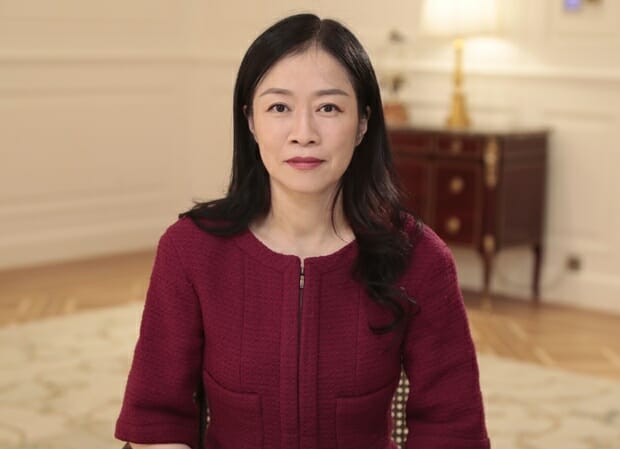
“5G is a standardized technology defined by high bandwidth, low latency and wide connectivity, helping traditional industries to change and benefiting everyone. Consumers are benefiting from the 5G experience, and industries in ports, mines and transportation are driving operational efficiencies.”
Huawei’s public relations and external cooperation president Chen Lifang gave a lecture on the theme of’Trust in the Power of Technology’ at the forum held at the MWC Shanghai 2021 preliminary event on the 22nd. It was explained using an example.
On this day, the forum participants represented organizations from all over the world, including international industry regulators and think tanks from China, Malaysia, Spain, Thailand, Hungary and Portugal. It was gathered to discuss the value of digital technology for a better world, and more than 1,000 people from 50 countries joined together.
In particular, he said, “I attended a forum to discuss the 17 Sustainable Development Goals of the United Nations.” “I personally believe that technology is important to advance these goals, and we are committed to unleashing the power of technology, We have to do two things to facilitate it.”
He explains that it is to draw an honest consensus on whether technology will be the engine of human development, to make technology effectively and to strive to create value for all.
“Looking back in history, I have experienced how great social change is with the advancement of science and technology. However, technological advances today are exaggerated, politicized, and sometimes used for bad purposes. “Many people don’t believe in the power of technology because of fear and disbelief, some of which hinder the progress of technology.”
“5G is a standardized technology defined by high bandwidth, low latency, and wide connectivity. It can help traditional industries change and benefit everyone. Large-scale 5G deployments can already be found in many industries around the world. Every day, consumers benefit from 5G experiences, and industries in ports, mines, and transportation are driving operational efficiencies. Is this really bad? I don’t think so.”
Technology is important, but claiming that the development of technology is ideologically wrong will only lead to division, confusion, and regression.
“We must reach a global consensus on this issue and believe in the power of technology that can be used for the benefit of society,” said Senior Vice President Chen Lifang.
“There is always a risk that someone will abuse the new technology, so it is not a new concern. After the Industrial Revolution, we have seen that enacting rules to manage scientific and technological risks can protect us. Through rules, technological advances can transcend borders and improve the livelihood of everyone without causing undue risk.”
For example, as we enter the digital age, many are working hard to create governance rules for cybersecurity, privacy, and trusted AI that will keep us safe, while others just need to be confident and open minded to technological advancement. will be.
Senior Vice President Chen Li Fang explained with an example of minimal functional product (MVP). “Usually MVP refers to the stage of product development that meets the most important requirements while using the least amount of resources. The MVP is constantly repeated and refined even after its release. “Because it is difficult to form a broad consensus, we draw an MVP concept so that technological development can be sustained, focus on the current limited consensus, and check which resources are actually available. “We can make progress.”
“Huawei has always supported technological advances,” he said. “We believe that technology will ultimately benefit humanity, and we also believe that digital technology will help the United Nations achieve its sustainable development goals.” Huawei already has a variety of digital application examples according to the sustainable development goals.”
Related Articles

Huawei unveils foldable’Mate X2’… “Thinner and no gap than the Galaxy Z Fold 2”

Huawei’Mate X2′ already lined up with 3 million people

Huawei proposes to build a service-oriented network

US sanctions Huawei, smartphone market’fall without wings’
In fact, Huawei’s smart PV solutions are being used in more than 60 countries to reduce carbon emissions by 148 million tons. This is similar to planting 200 million trees. In addition, Ethiopia helped install more than 400 solar power plants, reducing carbon emissions by 2,850 tons. In China, it has built the world’s largest solar power plant for agriculture and fishing in Ningxia and Shandong.
Senior Vice President Chen Li Fang once again urged individuals and businesses to dream big but start small, stressing the need to build a green, innovative and inclusive world with the United Nations’ Sustainable Development Goals.
